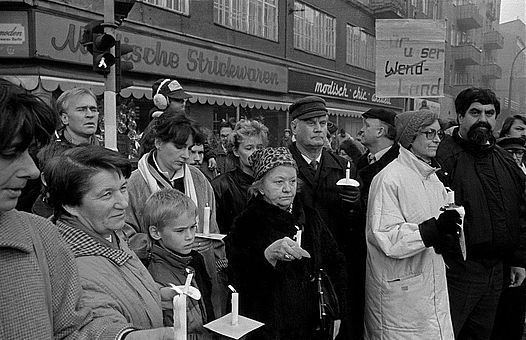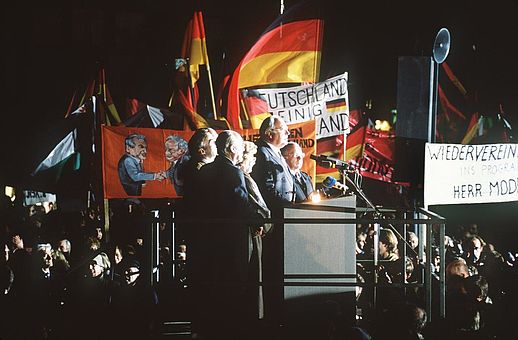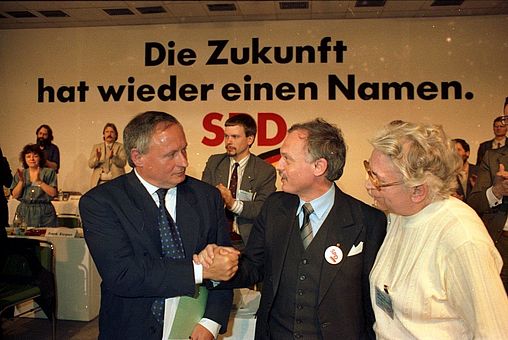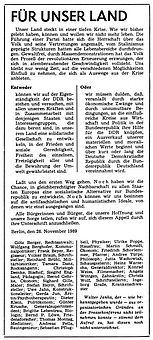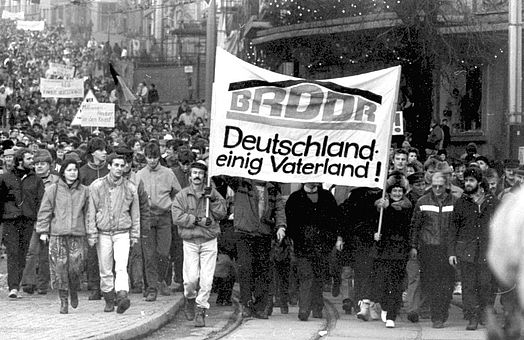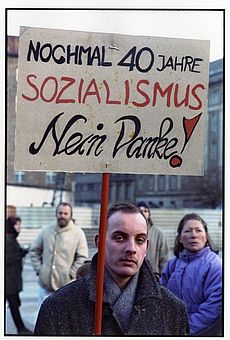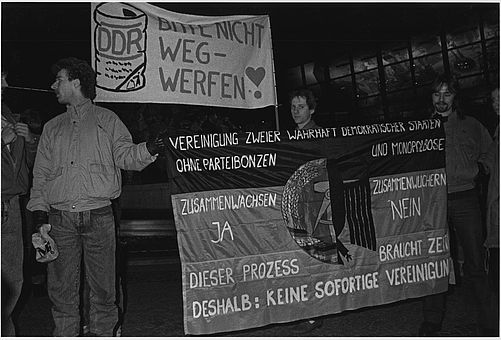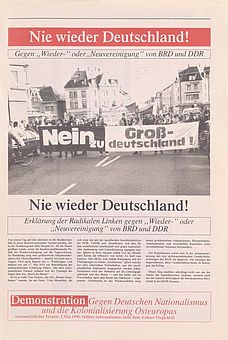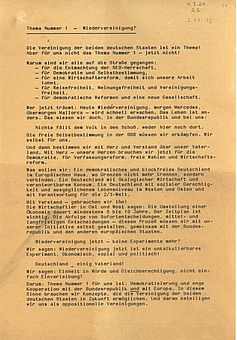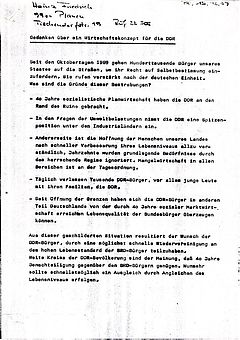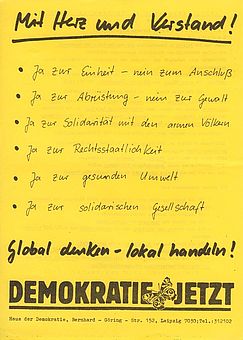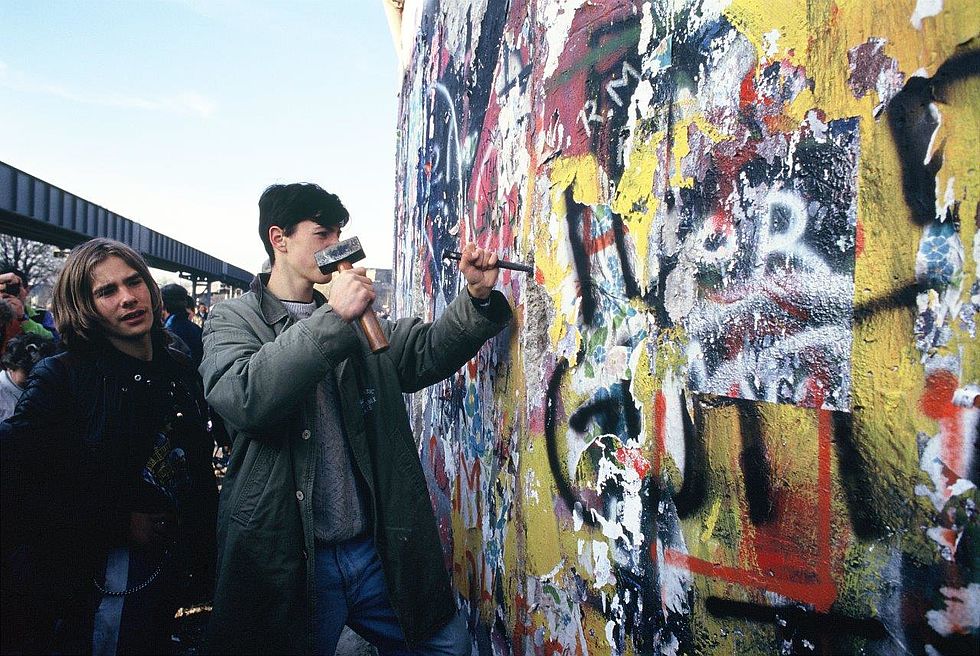
- Старт >
- ОБЪЕДИНЕНИЕ >
- No experiments >
- Unification – yes or no? When and how?
Einheit - ja oder nein? Wann und wie?
Эта статья еще не переведена русский.
The slogans at demonstrations in the GDR changed towards the end of November 1989. Increasingly, people were demanding unification as the way to democracy and prosperity. Some civil rights activists, however, saw democratisation of the GDR as the precondition for German unification. Others, like supporters of the appeal "For Our Country" issued on 26 November 1989, wanted to retain the GDR as an independent state. They were afraid of being taken over by the West, and urged a "socialist alternative" to West Germany.
There were also opponents of unification in West Germany, who warned against nationalistic German megalomania and freebooting capitalism. A clause in the Federal Republic's Basic Law called on the German people "to complete the unity and freedom of Germany in free self-determination".
Initially, rapid reunification was not the aim of West Germany's policy: in late November 1989 federal chancellor Helmut Kohl proposed a ten-point plan for a gradual convergence process. West German politicians were subject to growing pressure from the population when they visited the GDR. By late January 1990 concrete plans for rapid reunification were in motion.
